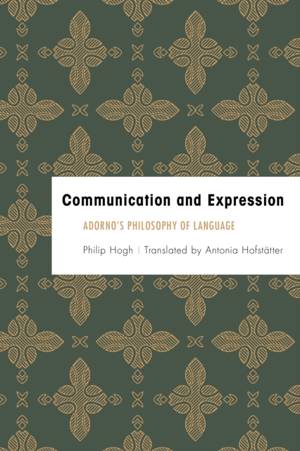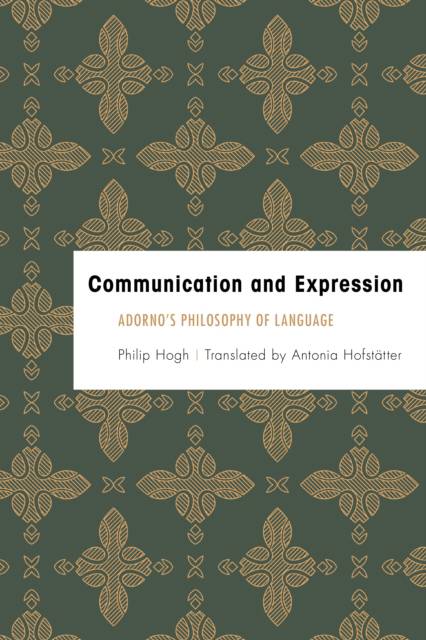
- Afhalen na 1 uur in een winkel met voorraad
- Gratis thuislevering in België vanaf € 30
- Ruim aanbod met 7 miljoen producten
- Afhalen na 1 uur in een winkel met voorraad
- Gratis thuislevering in België vanaf € 30
- Ruim aanbod met 7 miljoen producten
Zoeken
€ 312,45
+ 624 punten
Uitvoering
Omschrijving
The linguistic turn in critical theory has been routinely justified with the claim that Adorno's philosophy is trapped within the limits of consciousness philosophy. Yet Adorno's own philosophy of language has not yet been fully and systematically examined in its own right. Philip Hogh argues that it was in fact the linguistic turn in critical theory that prevented a thorough analysis of Adorno's philosophy of language. Here he reconstructs Adorno's philosophy of language and presents it as a coherent theory that demands to be understood as an important contribution to contemporary linguistic philosophy. By analysing all the key concepts in Adorno's thought (subjectivity, epistemology, social theory and aesthetics), and comparing them to Robert Brandom's material inferentialism, John McDowell's theory of conceptual experience and Jürgen Habermas' theory of communicative action, this book presents Adorno's theory as an important contribution to contemporary philosophy of language in its own right.
Specificaties
Betrokkenen
- Auteur(s):
- Vertaler(s):
- Uitgeverij:
Inhoud
- Aantal bladzijden:
- 298
- Taal:
- Engels
- Reeks:
Eigenschappen
- Productcode (EAN):
- 9781783487271
- Verschijningsdatum:
- 4/01/2017
- Uitvoering:
- Hardcover
- Formaat:
- Genaaid
- Afmetingen:
- 155 mm x 231 mm
- Gewicht:
- 612 g

Alleen bij Standaard Boekhandel
+ 624 punten op je klantenkaart van Standaard Boekhandel
Beoordelingen
We publiceren alleen reviews die voldoen aan de voorwaarden voor reviews. Bekijk onze voorwaarden voor reviews.











